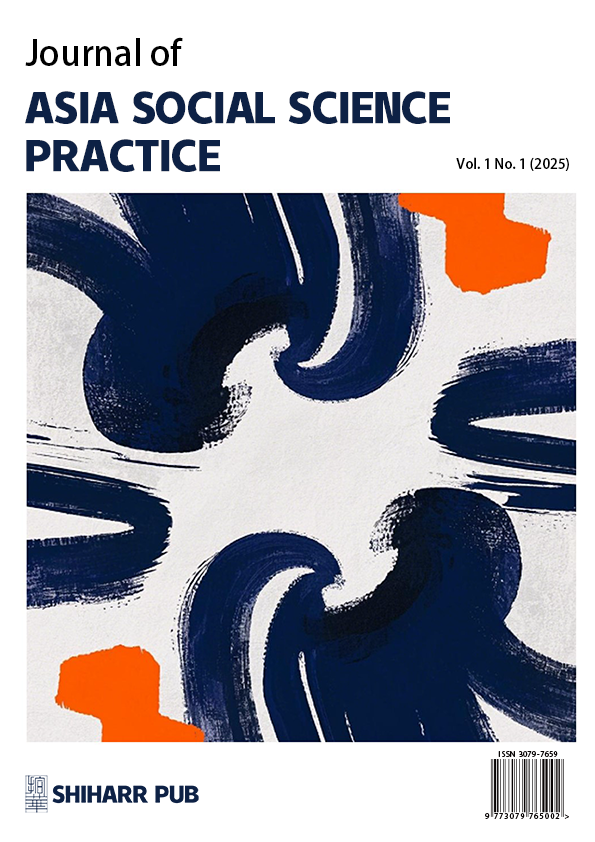The Irreplaceable Role of Tradition in Modern Education: A Global View from China
DOI:
https://doi.org/10.71411/jassp.2025.19Keywords:
Traditional Education Value, Modern Education Innovation, Education Integration Practice, Global Education Comparison, Humanistic Literacy and Critical ThinkingAbstract
This study based on in-depth interviews with 20 education experts from Yulin First Senior High School and Guilin First and Second Senior High Schools in Guangxi, China, explores the irreplaceable role of traditional educational elements in modern education. The research examines the core value, integration, and effectiveness of these elements within innovative educational practices. Findings reveal that despite advancements in educational technology, traditional subjects such as history, ethics, philosophy, and classical literature remain fundamental to fostering humanistic literacy, value formation, and critical thinking. Furthermore, educators emphasize that the effective integration of tradition and modernity requires modular curriculum design, interdisciplinary collaboration, strategic technology use, and teacher capacity-building. By situating China's experience within a global context, this study highlights the universal significance of traditional education and offers practical policy recommendations for balancing heritage with educational innovation.
References
Bahtilla, M., & Xu, H. (2021). The influence of Confucius’s educational thoughts on China’s educational system. Open Access Library Journal, 8(5), 1–17. https://doi.org/10.4236/oalib.1107370
Bansal, A., & Srivastava, S. (2024). The Significance of the Bhagavad Gītā Philosophical Principles in Contemporary Education Systems. https://doi.org/10.5040/9781350883048.013
Buys, T., Casteleijn, D., Heyns, T., & Untiedt, H. (2022). A reflexive lens on preparing and conducting semi-structured interviews with academic colleagues. Qualitative Health Research, 32(13), 2030–2039. https://doi.org/10.1177/104973232211308
Cao, W. (2024). Chinese Characters and Cultural Inheritance: Exploring the Important Role of Chinese Characters in the Inheritance of Chinese Culture. Cultura: International Journal of Philosophy of Culture and Axiology, 21(1). https://doi.org/10.3726/978-3-653-
01552-2/5
Demssie, Y. N., Biemans, H. J., Wesselink, R., & Mulder, M. (2020). Combining indigenous knowledge and modern education to foster sustainability competencies: Towards a set of learning design principles. Sustainability, 12(17), 6823. https://doi.org/10.3390/su12176823
Eswaran, U. (2024). Project-Based Learning: Fostering Collaboration, Creativity, and Critical Thinking. In Enhancing Education With Intelligent Systems and Data-Driven Instruction. IGI Global. https://doi.org/10.4018/979-8-3693-2169-0.ch002
Gao, W., & Zhang, X. (2023). Research on Project-Based Learning Practice in Primary School Mathematics Focused on Core Literacy Cultivation. International Journal of Education and Humanities, 11(3), 229–232. https://doi.org/10.54097/ijeh.v11i3.14898
Hakala, L., & Kujala, T. (2021). A touchstone of Finnish curriculum thought and core curriculum for basic education: Reviewing the current situation and imagining the future. Prospects, 51(1), 473–487. https://doi.org/10.1007/s11125-020-09533-7
Keane, M., Raciti, M., van der Westhuizen, G., Motala, S., Stanton, S., Gilbey, K., & Msimango, S. (2023). Indigenous knowledge systems in South Africa and Australia: Transforming doctoral education. Curriculum Perspectives, 43(Suppl 1), 83–93. https://doi.org/10.1007/s41297-023-00183-1
Kim, E. (2024). Chinese primary art education and traditional art culture: Focusing on the content analysis of art textbooks. Yeogsa Munhwa Yeon’gu. https://doi.org/10.18347/hufshis.2024.89.171
Lee, S. M. (2024). Explore and Experience London: Learning Literature and Culture Through Immersive Virtual Reality in the Efl Classroom. https://doi.org/10.2139/ssrn.4711397
Monterroza, T. G., & Solano, E. M. C. (2024). Integration of local and traditional knowledge into the rural curriculum of the Municipality of Sahagún, Córdoba, Colombia: Integración de conocimientos locales y tradicionales en el currículo rural del Municipio de Sahagún, Córdoba, Colombia. LATAM Revista Latinoamericana de Ciencias Socialesy Humanidades, 5(4), 2434–2443. https://doi.org/10.56712/latam.v5i4.2429
Nayak, A., Satpathy, I., & Jain, V. (2024). The Project-Based Learning Approach (PBL): Enthralling Students Through Project-Based Learning Approach (PBL) in Education 5.0. In Preconceptions of Policies, Strategies, and Challenges in Education 5.0. IGI Global.
https://doi.org/10.4018/979-8-3693-3041-8.ch010
Reimers, F. M. (2021). In search of a twenty-first century education renaissance after a global pandemic. In Implementing deeper learning and 21st century education reforms: Building an education renaissance after a global pandemic (pp. 1–37). https://doi.org/10.1007/978-3-030-57039-2_1
Reyes-Samilpa, A., Antonio Reyes-Agüero, J., & de la Borbolla, S. R. (2020). Elaborar ayates. El trabajo artesanal hñähñu del hilado y tejido en el Valle del Mezquital, México. Itinerarios. Revista de Estudios Lingüísticos, Literarios, Históricos y Antropológicos, 31, 267–291. https://doi.org/10.7311/itinerarios.31.2020.14
Richardi, J. (2022). Introducing K-12 Classical Education: Modern Take on Ancient Curriculum. Educational Innovations and Emerging Technologies, 2, 46–54. https://doi.org/10.35745/eiet2022v02.02.0005
Setyawan, D., & Dopo, F. (2020). Strengthening national identity through the learning of east culture-based art education. Harmonia: Journal of Arts Research and Education, 20(1), 39–46. https://doi.org/10.15294/harmonia.v20i1.21711
Shinde, S. P., Pasa, M. E. K., Waghmare, R., & Saikia, B. (2024). NEP-2020: Challenges and Opportunities. https://doi.org/10.21275/sr24317112959
Sridharan, V. G. (2021). Methodological Insights Theory development in qualitative management control: Revisiting the roles of triangulation and generalization. Accounting, Auditing & Accountability Journal, 34(2), 451–479. https://doi.org/10.1108/AAAJ-09-2019-4177

Downloads
Published
Issue
Section
License
Copyright (c) 2025 Zeng Huang (Author)

This work is licensed under a Creative Commons Attribution-NonCommercial-NoDerivatives 4.0 International License.










